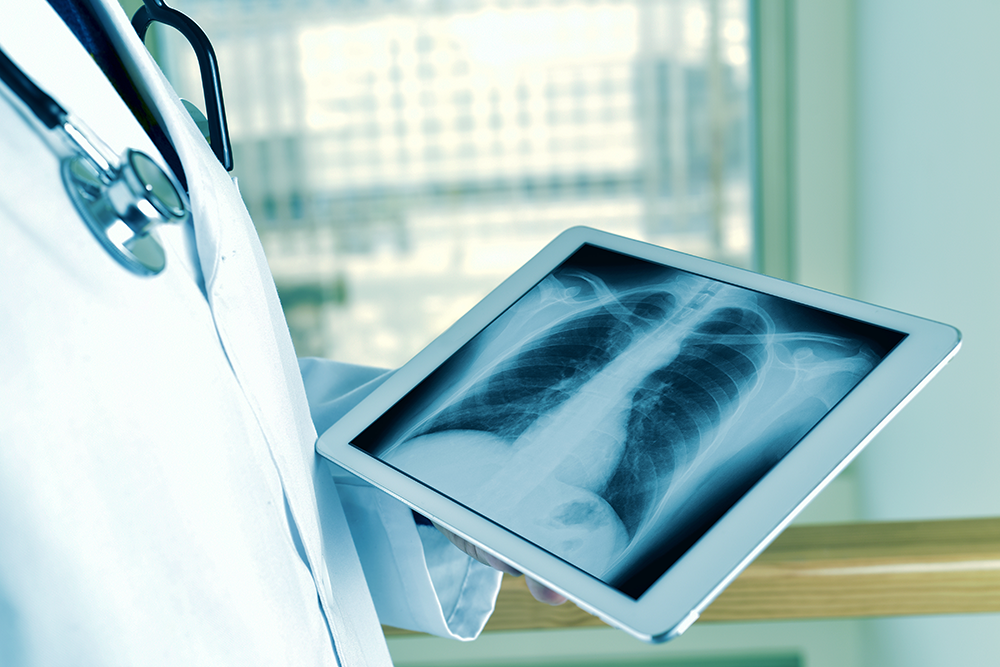Lung cancer is the leading cause of all cancer deaths in the United States. Research has found that high risk people who get low-dose CT scans of the chest had a 20% lower chance of dying from lung cancer than those who got only chest X-rays.
Lung cancer is more likely to be successfully treated when found at an earlier stage when it is small and before it has spread to other areas.
Who should get screened? Here are the screening criteria:
- 50 to 77 years old and in fairly good health
- Currently smoking or have quit within the past 15 years
- Have at least a 20-pack-year smoking history (number of years you smoked x average number of packs per day equals pack years.)
Lung cancer screening is covered by Medicare and many private health insurance plans. Screening involves in initial visit sitting face-to-face with a provider talking about the rationale for screening and assuring that you meet criteria. After this, a low-dose CT scan of the chest is performed which takes just a few minutes. If early screening shows an abnormal finding, more testing will likely be needed to confirm a diagnosis. However, most abnormal results are not cancer.
If you meet the screening criteria, a lung cancer screening visit and scan can be scheduled by calling Minnesota Oncology at 952.920.2920.




